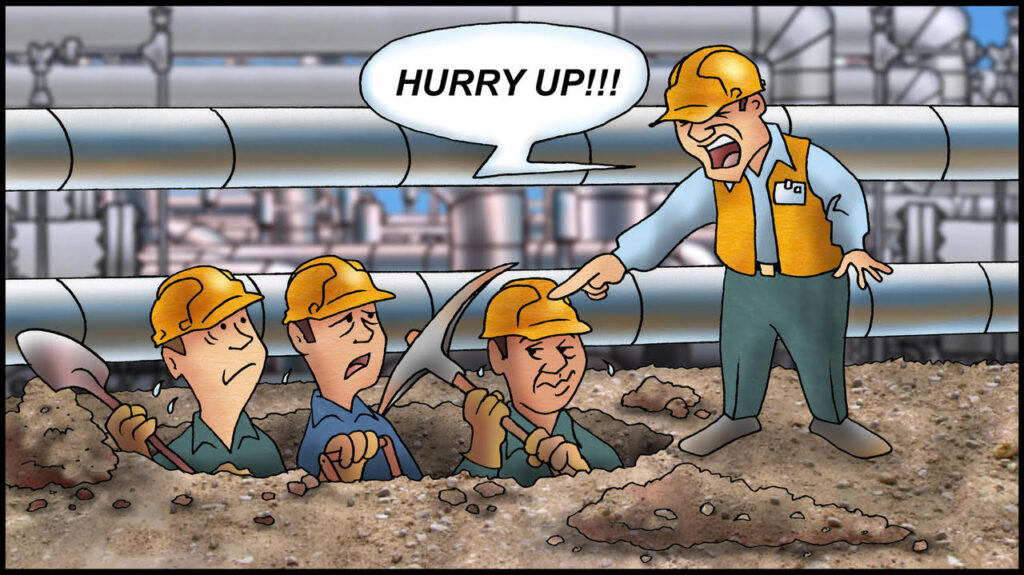Pressure on and off the job can lead to errors and accidents. This is a pressure packed year due to a pandemic, politics, and economic hardships. No one has an accurate grasp on what to do, although many are offering remedies. The multiplicity of messages can increase our stress. Current issues can diminish our abilities and increase our limitations. When we go to work, we cannot leave the concerns at home. We have to be careful that pressure does not hinder our performance.
Pressure is part of work and can keep us motivated. It can be beneficial if it leads to proper actions, timely actions, and correct decisions. Too much pressure can be detrimental if we rush, panic, or just plain fail to act. Problems arise when unnecessary urgency overshadows good hazard analysis and critical thinking. Over time, pressure can cause us to experience stress and fatigue.
Two things can happen when a critical decision is required in the presence of pressure.
- We can make the right choices and perform extraordinarily. Then we feel great and may receive praise.
- We can make the wrong choices which result in failure. Then we feel terrible and may receive criticism.
What types of pressure do you experience? What are the sources of pressure?
- Managers and customers will always have demands. Those demands may involve doing the tasks faster, cheaper, better. I remember one accident where the scheduler wanted a higher pumping rate than the equipment could handle, the equipment failed, and there was a leak.
- Peers, family, and friends may exert pressure. They might demand we go out when we should rest before our next shift so we will be fit for duty.
- Time constraints are always present. We want to accomplish many meaningful tasks every day. One Controller told me he was going to hockey practice after completing night shift. Did he get adequate sleep before returning to work?
Some ways pressure may lead to problems are:
- Start a pipeline back up when unsure it is safe, or keep one running when in doubt.
- Take a shortcut in a procedure.
- Do things that may compromise safety or quality, for the sake of profitability.
- Work an extra shift or extra hours, when fatigued.
- Do too many tasks at once, or in a short time period.
- Stay at the console when you need a break.
- Work in a stressful environment, even when improvements can be made.
These can help manage pressure before it becomes a problem:
- Don’t overwhelm yourself or others.
- Don’t be afraid to ask for help.
- Communicate your concern to your manager and coworkers.
- Don’t create a false sense of urgency.
- Don’t take shortcuts; do the job right all the time.
- Say no to pressure and to those who pressure you.
- Develop good planning and coping skills.
THE FILTHY 15 EDUCATIONAL PROGRAM | Charles Alday © 2020 Please Distribute to Others.




